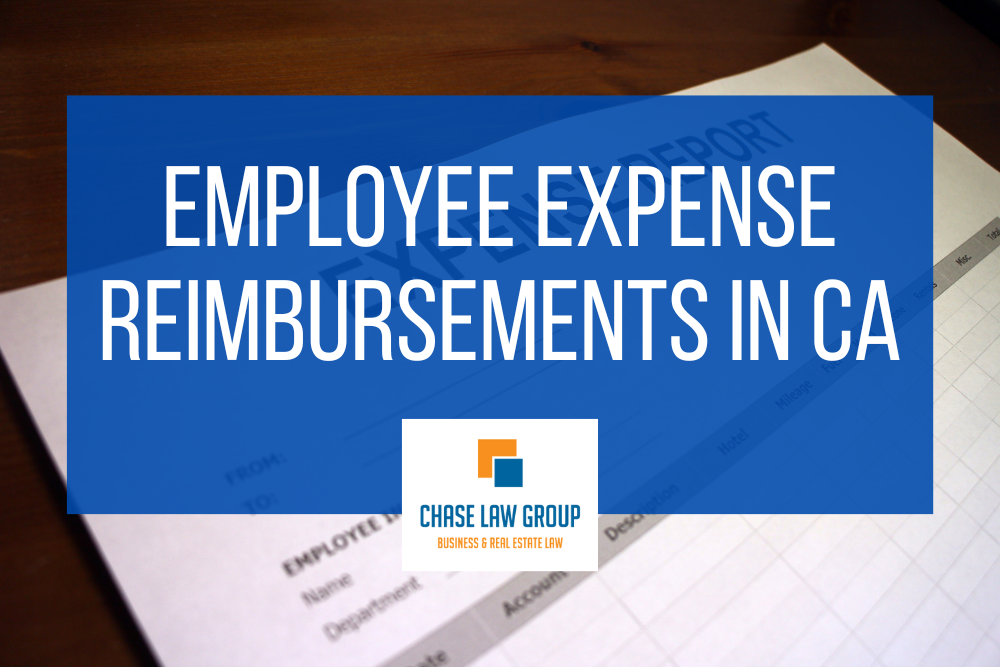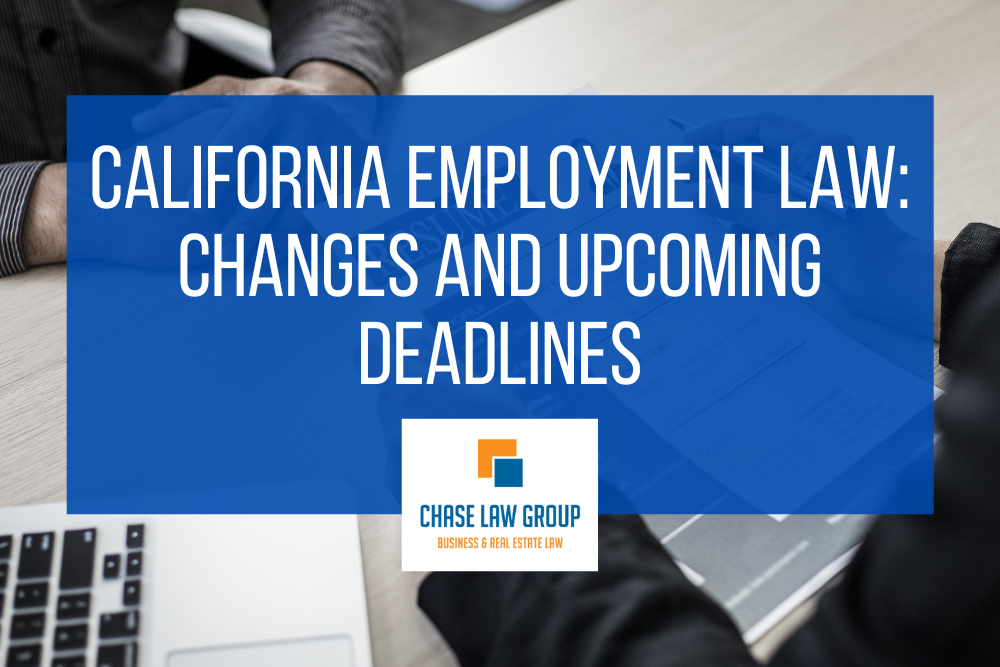The ABCs of California’s Requirement for Reimbursing Employee’s Expenses
By Admin August 23, 2022 Category: Business Law

California employers are required to reimburse their employees for “all necessary business expenditures or losses incurred by the employee in direct consequence of the discharge of his or her duties.” (See California Labor Code section 2802.) Employers failing to properly reimburse their employees for work-related expenses risk exposure for the unreimbursed expense, attorneys fees, and possibly a Private Attorney General (PAGA) claim or class action if the practice of not reimbursing employees is widespread. Importantly, employers are obligated to proactively determine whether an employee is incurring expenses and cannot simply rely upon the argument that the employee never requested reimbursement.... READ MORE
California Employment Law: Changes and Upcoming Deadlines
By Admin June 20, 2022 Category: Business Law

This month we remind you of upcoming changes and deadlines coming at the end of this month related to California employment law and discuss a recent California decision impacting meal and rest period violation and premium pay reporting requirements. Increase in City of Los Angeles and Unincorporated County of Los Angeles Minimum Wage Requirements Effective July 1, 2022 Effective July 1, 2022, minimum wage for employees working within the City of Los Angeles will increase from $15.00 per hour to $16.04 per hour. The City of Los Angeles minimum wage rate applies to any employees who perform at least two... READ MORE
Give Me A Break: Avoid The Pitfalls of Meal and Rest Break Violations
By Admin May 16, 2022 Category: Business Law

A common wage and hour issue targeted by savvy Plaintiff’s employment attorneys is whether employers correctly and accurately provide meal and rest periods to their non exempt employees. Under California law, an employee is entitled to an hour of pay for any missed or interrupted meal or rest period that an employee is not provided each day (for a maximum limit of two hours of penalty per day) going back over four years. Additionally, if the meal and rest period violations occur across the board to all or many employees, such violations can serve as a basis for a Private... READ MORE
What Employers Should Know About The California Data Protection Act
By DeAnn Chase December 07, 2016 Category: Business Law

The California legislature passed the nation’s first data breach notification statute in 2003, the California Data Protection Act (CDPA). Since this landmark legislation was enacted, over 30 states have passed similar statutes. The law is another example of California's trendsetting legislation in the area of privacy. What the CDPA requires The CDPA requires that any business that “owns or licenses personal information about a California resident shall implement and maintain reasonable security procedures and practices appropriate to the nature of the information, to protect the personal information from unauthorized access, destruction, use, modification, or disclosure.” Further, it requires a business... READ MORE

